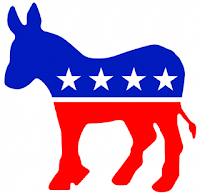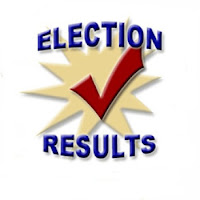Splitting Hairs -- the difference between a pedophile & a child molester
The Russian Federation Council’s Commission
on Protecting State Sovereignty and Preventing Foreign Political Meddling
has advised Russian companies to
avoid buying advertisements on Twitter, in response to the
company’s recent decision to ban promoted content from the state-funded media outlet RT. “The U.S. state authorities and
intelligence agencies are openly infringing on free speech, actually forcing
certain commercial enterprises to participate in anti-Russian actions,” said
Oleg Morozov, the commission’s chairman. Morozov says he believes a Russian
boycott of Twitter ads could cost the company “millions of dollars.”
·
On October 26, Twitter announced that
it was “off-boarding” all advertising from accounts owned by RT and Sputnik,
and donating the $1.9 million it’s received in ad buys from RT to
support research into “the use of Twitter in civic engagement and elections.”
·
RT says Twitter
actually pushed it to purchase a large number of ads during
the 2016 U.S. election, but the channel turned down the offer. The main
idea RT says Twitter pitched was for the network to “take a
stand.” RT says it eventually declined the offer, deciding that
the ads were too expensive. (The Real Russia.
Today. November 1)
HOW JAPANESE BUSINESSES SEE NAFTA: The
dim view of the Trump administration's NAFTA proposals isn't coming solely from
U.S. businesses. A major council of Japanese firms also agreed that Trump's
proposals, particularly those that would tighten rules of origin on autos,
could harm investments from both U.S. and Japanese companies. Most major
Japanese automobile companies - including Honda, Toyota and Nissan - have
extensive production facilities throughout North America, meaning they would be
directly affected by changes proposed by the U.S., such as setting a new
American content requirement for autos to qualify for tariff cuts under the
deal.
The primary business councils from Japan and the U.S. urged
"U.S. negotiators to reconsider those proposals that would be harmful to
U.S. businesses, such as the local content requirements in the automotive
sector, as well as Japanese firms with substantial investments in the United
States and across North America," according to a joint statement released after the
annual Japan-U.S. business council conference, which wrapped up on Friday.
The U.S.-Japan Business Council and its sister group, the
Japan-U.S. Business Council, also warned against "rising protectionist
sentiment" guided by "oversimplified metrics related to trade
deficits and surpluses."
"We have to have a very realistic aim given global value
chains," Kunio Ishihara, chairman of the Japan-U.S. Business Council, said
at a press conference Friday when asked about the NAFTA talks. (POLITICO's
Morning Trade, November 6, 2017)
 |
CLIMATE CHANGE |
“There’s no bigger impact on the environment
than brown coal mining, and we’re the world champion,” said Dirk Jansen, a
leader of the local chapter of Friends of the Earth in Germany’s coal heartland
of North Rhine-Westphalia. “If we want to stop climate change, we have to start
here.”
 |
DEMOCRATIC PARTY |
Zinke pushed to scrap GMO ban on refuge
land: The Information Technology and Innovation
Foundation, a pro-biotech group, is urging the Interior secretary to reverse
Obama-era bans on use of genetically modified crops and neonicotinoid
pesticides on National Wildlife Refuges [POLITICO's
Morning Agriculture, October 3, 2017]
Carbon pollution is
harmful. But methane pollution is a whole lot worse. 84 times more
potent than carbon, in fact. And on
top of methane's contribution to climate change, it and other toxic pollution
is associated with both higher risks for cancer and increased asthma attacks
for children. But Secretary of the Interior Ryan Zinke wants to weaken
safeguards against methane pollution, giving corporate polluters a free
pass to dump millions of tons of toxic pollution into our air. Sec. Zinke's reckless decision puts our
communities, our climate, and our health at risk. Help us stop it by submitting
a comment on this rule today. Tell Secretary Zinke to side with
Americans' health, not polluters. Methane, and other co-pollutants that are
released in fracking and other fossil fuel development, are dangerous health
hazards, particularly to children and vulnerable individuals. The Bureau of Land Management (BLM) recently
finalized protections to stop venting and flaring of fracked gas and dangerous
pollutants on public and tribal lands. These commonsense protections are
cost-effective and keep our communities healthier. Now, Sec. Zinke is attempting to stall
these vital standards for a year. We deserve better -- we cannot let
the Trump administration sell out the health of our communities and expose us
to harmful methane and toxic air pollution. More than 74,000 people live within
a half-mile of an oil or gas facility on federal or tribal public lands. And
the venting, flaring, and leaking fracked gas spewing out of these facilities
is polluting the air our children breathe and causing rates of asthma attacks
in children to increase. We have a moral
duty to protect the clean air our children need to breathe, but this
administration has made it clear that they would rather pollute the air and
risk our children's lives to help corporate polluters. Make no mistake: if Sec. Zinke stalls
these standards to let corporate polluters off the hook, communities will pay
the price. We cannot allow this to happen - our communities, our climate, and
our health depend on it. For our
climate, our health, and to ensure a healthy future for our children, we must
hold Sec. Zinke accountable. --
Matthew Gravatt, Associate Legislative Director Sierra Club
Matthew Gravatt, Associate Legislative Director Sierra Club
 |
ENERGY |
- Assume E15 bill
dead (for now): Both Senate EPW Chairman John Barrasso and bill sponsor
Sen. Deb Fischer now say a measure, S. 517 (115), that would allow year-round sales of
higher blends of ethanol won't even get a committee vote this year, Pro's Eric
Wolff reports . Even with five committee
members as co-sponsors, there wasn't sufficient support among panel members,
and a flurry of amendments threatened to go after bedrock environmental laws. [POLITICO's Morning Agriculture, October 6, 2017]
- Biofuels producers
like passthrough tax breaks: Like everyone, ethanol producers await
details of the Republican tax-overhaul plan, but they see at least one feature
they like: the tax cut on passthrough businesses. The principles in the
"Big Six" tax overhaul call for a reduction in the tax rate from 36.9
percent to 25 percent on taxes paid by businesses run by sole proprietors,
partnerships and "S Corps" - commonly called "passthrough"
businesses. "That's how our plants are mostly organized, we see this as
potential positive for our members," said John Fuhrer, senior director for
government affairs for Growth Energy, an ethanol producers group. [POLITICO's Morning Agriculture, October 6, 2017]
 |
ENVIRONMENT |
Today, the House of
Representatives is set to advance a bill to slash protections for our public
lands and waters. This bill would hand
over wild places that belong to you and me to Big Oil. What’s more, it would
gravely weaken protections for endangered species.
Donald
Trump and Republican leaders in Congress want to open up millions of acres of
our public lands and waters to Big Polluters and other special interests.
They’re more concerned with the fossil fuel industry’s profits than with
protecting wildlife, public health and a safe climate. So they’re trying to force through
legislation that would give Big Oil exactly what it wants -- no matter what the
cost to our environment. This bill would
gut safety standards for oil drilling. It would override the Endangered Species
Act’s ability to protect whales and dolphins from seismic air gun surveys. And
it would eliminate enforcement of rules around fracking.
Our
public lands -- from the Arctic to Bears Ears National Monument to our marine
sanctuaries -- should be preserved for wildlife to flourish and for future
generations to enjoy. We can’t let Trump and Republicans in Congress hand these
places over to the oil industry just so it can make more profits. When people like you speak up to protect our
public lands and waters, Congress listens. Earlier this year, Rep. Chaffetz was
forced to withdraw a similar attack on our wild places. Now, we need your help
to do it again.
Standing
with you,
Marcie Keever,
Oceans and vessels program director,
Friends of the Earth
Marcie Keever,
Oceans and vessels program director,
Friends of the Earth
NOTE: The news sources here vary. Not all sources have the same credibility, but in an effort to share some different perspectives, they are included here. This compendium itself cannot claim to be unbiased. Please take into consideration where these different perspectives originate in assessing their value. Thank you
NOTE: I have no official connection to any organization from which information is shared.. Occasionally, I post informational material and/or an opportunity to donate or join as a "community service" announcement. These again are shared for their varying perspectives.
Any books listed are random or topic-related to something else in the post. Think of these as a "library bookshelf" to browse. They are shared for informational or entertainment value only, not as being recommended
NOTE: I have no official connection to any organization from which information is shared.. Occasionally, I post informational material and/or an opportunity to donate or join as a "community service" announcement. These again are shared for their varying perspectives.
Any books listed are random or topic-related to something else in the post. Think of these as a "library bookshelf" to browse. They are shared for informational or entertainment value only, not as being recommended












Comments
Post a Comment